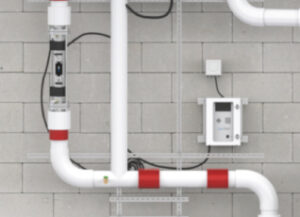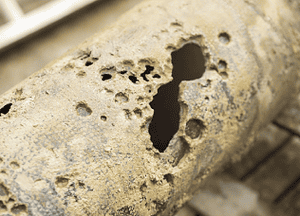LiquiTech applauds CDC for its stand on water management plans and Legionella testing. Noting a 370% increase in Legionnaires’ disease outbreaks since 2000, the Centers for Disease Control and Prevention (CDC) has called on building owners and property managers to monitor better and control the risks associated with their drinking and service water systems.
“As a company that has specialized in Legionella prevention and remediation for more than a quarter century, we have witnessed firsthand the increase in Legionnaires’ disease across the country, leading to needless suffering and loss of life,” said Tory Schira, LiquiTech’s CEO. “We commend the CDC for making such a clear statement that water management planning, environmental testing, and control measures are needed to stop the scourge of a deadly disease.”
Analyzing 27 CDC investigations of Legionnaires’ disease outbreaks, the CDC found that potable (drinking) water distribution systems were the most frequent source of exposure, at 56% of cases, followed by cooling towers (22%), hot tubs (7%), industrial equipment (4%) and a decorative fountain (one outbreak). Potable water sources accounted for two-thirds of healthcare-associated outbreaks.
Forty-four percent of the outbreaks investigated by the CDC were at hotels and resorts, 19% at long-term-care facilities, and 15% at hospitals (the others were among senior living facilities, workplaces, and the community).
“We are happy to see an acknowledgment that cooling towers are far from the only way people contract Legionnaires’–a common misconception,” Tory said. “Cooling towers were certainly the source of some serious outbreaks, including in New York City last year, but as we at LiquiTech have found over the course of many years, drinking water is the bigger threat to human health and demands action to protect people and organizations.”
The CDC specifically endorsed the new ASHRAE 188 building code standards, which establish minimum requirements for managing the risk for Legionella growth and transmission in building water systems. Gaps in maintenance that could be addressed with a water management program to prevent Legionnaires’ disease outbreaks were described in 85% of 27 investigated outbreaks. In most outbreaks, inadequate water disinfectant levels and temperatures in the optimal range for Legionella growth were observed; implementing a functional water management program could address these deficiencies through routine monitoring of disinfectant levels and water temperature, the CDC found.
The CDC released a new toolkit for building owners and managers, “Developing a Water Management Program to Reduce Legionella Growth & Spread in Buildings: A Practical Guide to Implementing Industry Standards.” Based on ASHRAE 188, the toolkit provides a checklist to help identify if a water management program is needed, examples to help identify where Legionella could grow and spread in a building, and ways to reduce the risk of Legionella contamination.
Specifically, the CDC, for the first time, endorsed environmental testing for Legionella to validate the effectiveness of control measures and noted that such testing should be provided in any healthcare facility, as older and sicker people are most susceptible to contracting Legionnaires’ disease.
“We have waited a long time for the CDC to recognize the need for testing the water,” Tory said. “You cannot effectively carry out a successful water management program if you don’t know the nature of your problem. What gets measured can get addressed.”
All of the elements in the toolkit and ASHRAE 188 standards are addressed by LiquiTech’s complete water management solutions, Tory noted. The company employs a comprehensive approach to secure water systems against various waterborne pathogens. “We are ready to help any building owner or facilities manager meet the challenges laid down by the CDC and ASHRAE,” he said.


